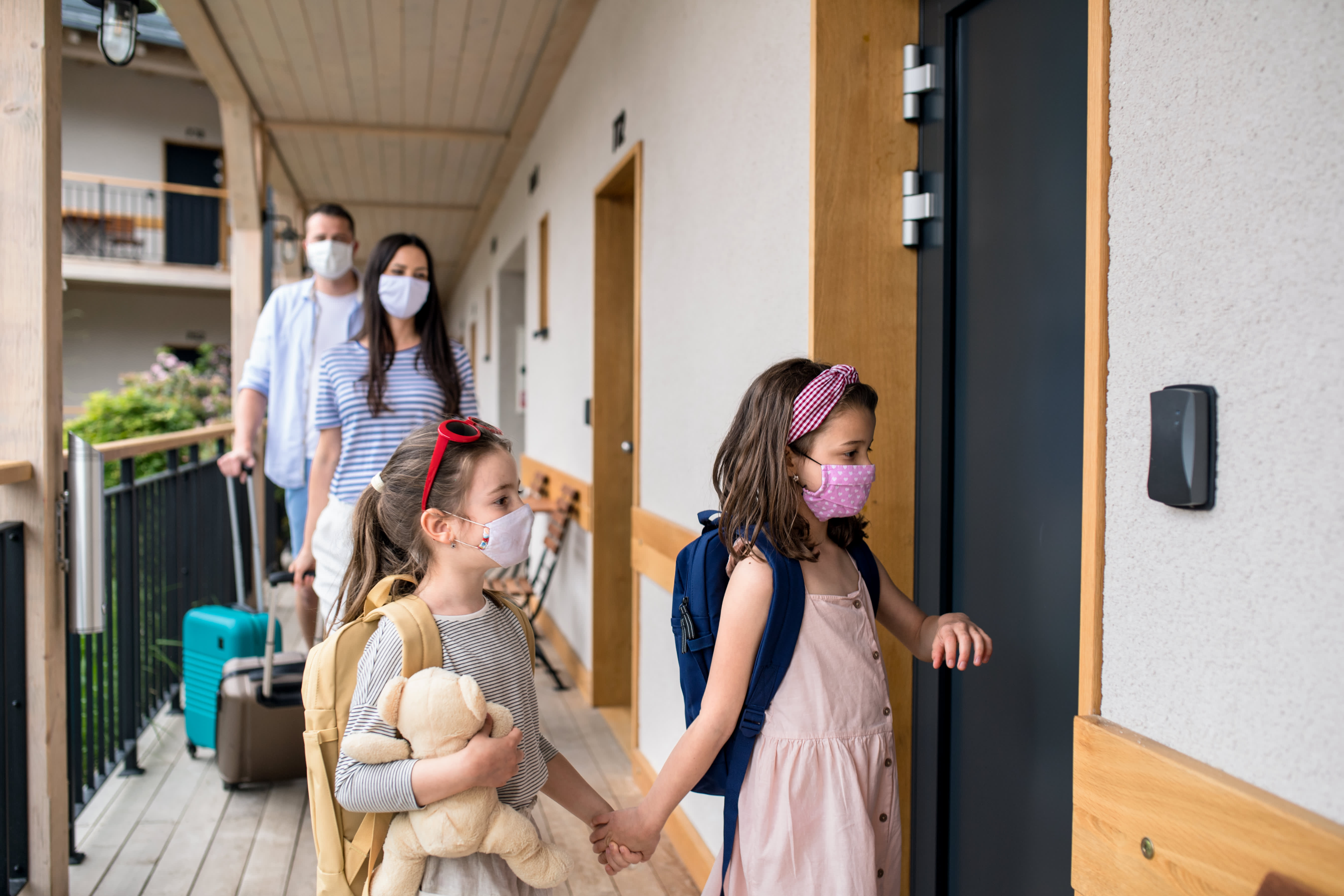Halfpoint Images | Moment | Getty Images
As news of several effective Covid-19 vaccines offers some light at the end of the tunnel that is 2020, will a beleaguered travel and tourism industry — one of the hardest hit by the pandemic — soon begin to recover?
Possibly, say sources, but they caution that travel may take years to fully rebound and, no matter the timing, will likely look different than it did pre-pandemic.
“The news of a potential vaccine does hold promise for travel in 2021,” said Julie Hall, spokeswoman for AAA. “But … travelers need to be focused on knowing the risks of traveling and exposure in the here and now.”
Brian O’Connell, analyst at InsuranceQuotes.com, takes an even more measured stance. “I’m just not bullish on travel for the first half of 2021 – even if a vaccine is mass produced in that timeframe,” he said. “Caution is the watchword, as the vaccine will take months to be fully distributed in the U.S. and abroad.”
Kayak.com CEO Steve Hafner said he thinks “people are taking more a wait-and-see approach … until one of these vaccines gets out there.”
More from Personal Finance:
Holiday trip reservations lag but last-minute bookings might help
Many would use stimulus for vacations but experts urge caution
Affluent travelers eager to get back to vacation business
However, the online travel agency did see a spike in searches — if not purchases — right after pharmaceutical giant Pfizer announced 95% efficacy for its Covid vaccine on Nov. 10. The next day, searches were up 27% compared to the week prior, he said, but settled into a “more modest” 6% weekly growth rate in the days that followed.
Still, Hafner said the increased searches are good sign.
“I’m very optimistic that once these vaccines get distributed, people’s perceptions around travel are going to change toward the positive,” he added.
“I’m hopeful it comes by the second quarter [of 2021], knock on wood,” Hafner said, of a rebound in travel. “If we’re really lucky, we’ll see it in the first quarter.”
A survey of 4,300 customers earlier this year by travel insurer Allianz found that 49% would travel again given a proven vaccine. Meanwhile, 42% said the go-ahead from public health officials would suffice.
“[The] promise of a highly effective vaccine is good news for the tremendous pent-up demand for travel, and should provide another reason for consumers to feel more confident booking trips for 2021,” said Daniel Durazo, director of marketing and communications at Allianz. He said he expected that luxury and experiential trips will be popular next year as consumers look to book so-called revenge travel in the wake of all of this year’s canceled plans.
Indeed, what travel expert Stella Shon at consumer finance site ValuePenguin called national “cabin fever” may spur some to book sooner rather than later, she said. “They’re ready to travel,” Shon said of vacationers. “It’s interesting that over half of Americans have still stayed in a hotel or vacation rental despite what’s been going on — but obviously with increased safety measures in place.”
If mass vaccination gets underway, personal safety practices like social distancing may fade away, Shon added, although she predicts consumer demand for an “OCD level of cleaning” at travel properties for some time to come. “I think people are aware that maybe these things weren’t happening before, and they should be happening regardless of a pandemic or not.”
To wit, an October survey by Tripadvisor and Phocuswright found that 63% of travelers said they are more likely to consider a hotel’s health and safety practices before booking than they were pre-pandemic.
Kayak’s Hafner thinks that changes in how travel product is provided will prove more durable than individual traveler behavior. “I do think [travel] will return to more traditional” patterns, Hafner said. “Paris is going to be popular again.
“There will be a return to equilibrium, if you will, but there may be a shift,” he added, in what types of travel consumers choose. Hafner foresees a move toward local stays, road trips, last-minute bookings, longer stays and increased used of non-hotel accommodations — at least for the next 12 to 18 months.
What may prove permanent is how travel companies and destinations provide that product.
“The role of technology as Covid is accelerating, the adoption of that has really changed a lot, not just in travel but in hospitality in general,” Hafner said. “The whole notion of touching grubby menus or interacting with airport kiosks, I think all of that is gone in the rearview mirror and people aren’t going to go back to it.”
For its part, Kayak — which at one point laid off 25% of its workforce and has seen business drop 60% year-over-year — tweaked its online offerings. The online agency introduced and prominently featured road trip itineraries, non-hotel accommodations options and information on flight flexibility and international Covid-19 restrictions and regulations.
“Our services have never been better,” he said. “I’m really proud of the way we innovated this year.”
